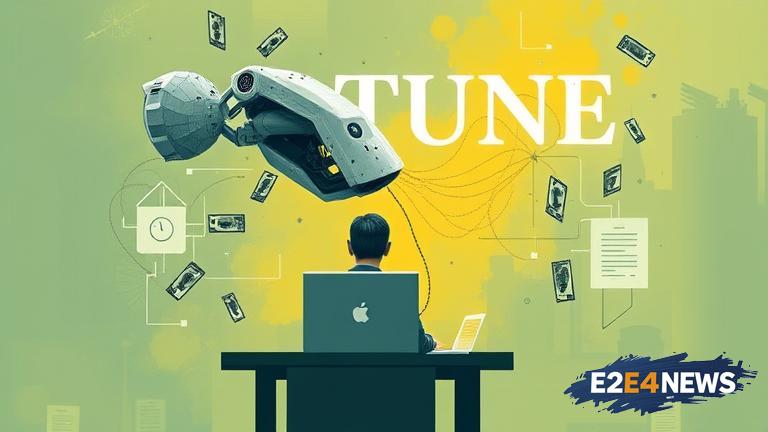In a move that has sent shockwaves through the media industry, Fortune magazine has announced a significant round of layoffs, with artificial intelligence (AI) technology being used to inform the decision-making process. The layoffs, which affect a substantial number of employees, have been attributed to the company’s efforts to streamline its operations and adapt to the changing media landscape. The use of AI in the layoffs has sparked concerns about the role of technology in the workplace and the potential for job displacement. According to sources, the AI system was used to analyze employee data and identify areas where cuts could be made. The decision to use AI in the layoffs has been met with criticism from some, who argue that it is unfair to rely on technology to make decisions about people’s livelihoods. Others have defended the move, citing the need for companies to stay competitive in a rapidly changing industry. The layoffs at Fortune are just the latest example of the challenges facing the media industry, as companies struggle to adapt to declining advertising revenue and changing consumer habits. The rise of online media has disrupted traditional business models, leading to a decline in print subscriptions and advertising revenue. As a result, many media companies are being forced to cut costs and reduce staff in order to stay afloat. The use of AI in the layoffs at Fortune has also raised questions about the potential for bias in the decision-making process. Some have argued that AI systems can perpetuate existing biases and discriminate against certain groups of people. In response to these concerns, the company has stated that the AI system was designed to be fair and unbiased, and that the decision to use it was made with the goal of making the layoffs as efficient and effective as possible. Despite these assurances, the layoffs at Fortune have sparked a wider debate about the role of AI in the workplace and the potential consequences for employees. As the media industry continues to evolve, it is likely that we will see more companies turning to AI and other technologies to help them navigate the challenges ahead. However, it is also important to consider the potential risks and consequences of relying on technology to make decisions about people’s livelihoods. The layoffs at Fortune are a reminder that the media industry is undergoing a period of significant change, and that companies must be willing to adapt and evolve in order to survive. In the coming months and years, it will be important to monitor the impact of AI and other technologies on the media industry, and to consider the potential consequences for employees and the wider community. The use of AI in the layoffs at Fortune has also raised questions about the potential for job displacement in other industries, and the need for workers to develop new skills in order to stay competitive. As the use of AI and other technologies becomes more widespread, it is likely that we will see significant changes in the way that companies operate and the types of jobs that are available. In order to prepare for these changes, it is essential that workers are provided with the training and support they need to develop new skills and adapt to the changing job market.
